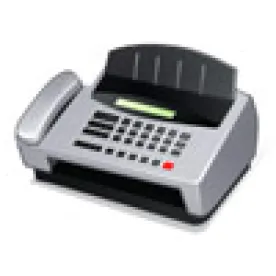On March 21, 2016, the Seventh Circuit Court of Appeals issued its decision in Bridgeview Health Care Center, Ltd. v. Jerry Clark d/b/a Affordable Digital Housing. Bridgeview examined whether there was vicarious liability under the Junk Fax provisions of the Telephone Consumer Protection Act (TCPA).
Jerry Clark d/b/a Affordable Digital Hearing (Clark) is a small company located in Terra Haute, Indiana. Clark hired third-party Business to Business Solutions (B2B) to send 100 faxes to businesses within a 20-mile radius of Clark. Instead, B2B faxed nearly 5,000 faxes across the Midwest. Bridgeview Health Care was one of the businesses that received a fax outside of the 20-mile advertising radius. Bridgeview sued Clark, seeking to hold him liable for all of the faxes B2B sent.
Under the TCPA, it is unlawful to use any telephone facsimile machine, computer or other device used to send, to a telephone facsimile machine, an unsolicited fax advertisement unless (i) the sender and recipient have an established business relationship; (ii) the recipient voluntarily made its fax number available through specified means; or (iii) the fax ad contained a statutorily compliant notice. 47 U.S.C. § 227(b)(1)(C). It was undisputed that when Clark’s faxes went out, the advertisements were in violation of the TCPA. Therefore, the question before the Bridgeview court was who qualifies as a “sender,” such that Clark could be held liable for B2B’s actions with respect to the unauthorized faxes. The TCPA itself is unclear as to who is the sender—whether it is the entity whose services are advertised (Clark), the broadcasting service that was retained to transmit the fax (B2B), the network carrier that is used to send the fax or any combination thereof.
Affirming the lower court’s decision, the Seventh Circuit noted the district court properly concluded that an agency analysis was the proper standard to apply. Examining agency rules, the Bridgeview court noted three types of agency authority: (i) express authority; (ii) implied actual authority; and (iii) apparent authority. The appellate court found B2B did not have agency authority to send the nearly 5,000 faxes.
First, the Bridgeview court found that Clark never gave B2B express authority to act as an agent on his behalf, which would have required Clark to directly speak or write to B2B instructing it to send the fax blasts in multiple states. The court stated, "[t]he record establishes that Clark told B2B it should send 100 faxes within 20 miles of Terre Haute. Instead, B2B sent 4,849 faxes across three Midwestern states. Because B2B expressly contradicted Clark’s actual instructions, this is clearly not express actual agency.” Second, the court found there no implied authority. The court stated there was nothing about fax marketing that “impliedly or inherently calls for sending thousands of advertisements.” Finally, the court determined Clark never gave B2B “apparent authority” to act on his behalf, which would mean Clark caused B2B to reasonably believe that he had consented to the fax blasts. The court stated, “Clark did nothing to create an appearance that B2B had authority to send faxes on behalf of either Affordable Hearing or Clark himself.”
Accordingly, the Seventh Circuit rejected the application of strict liability to TCPA claims for junk faxes and instead applied agency principles to find that Clark was not liable for B2B’s faxes outside of the 20-mile radius.





 />i
/>i

